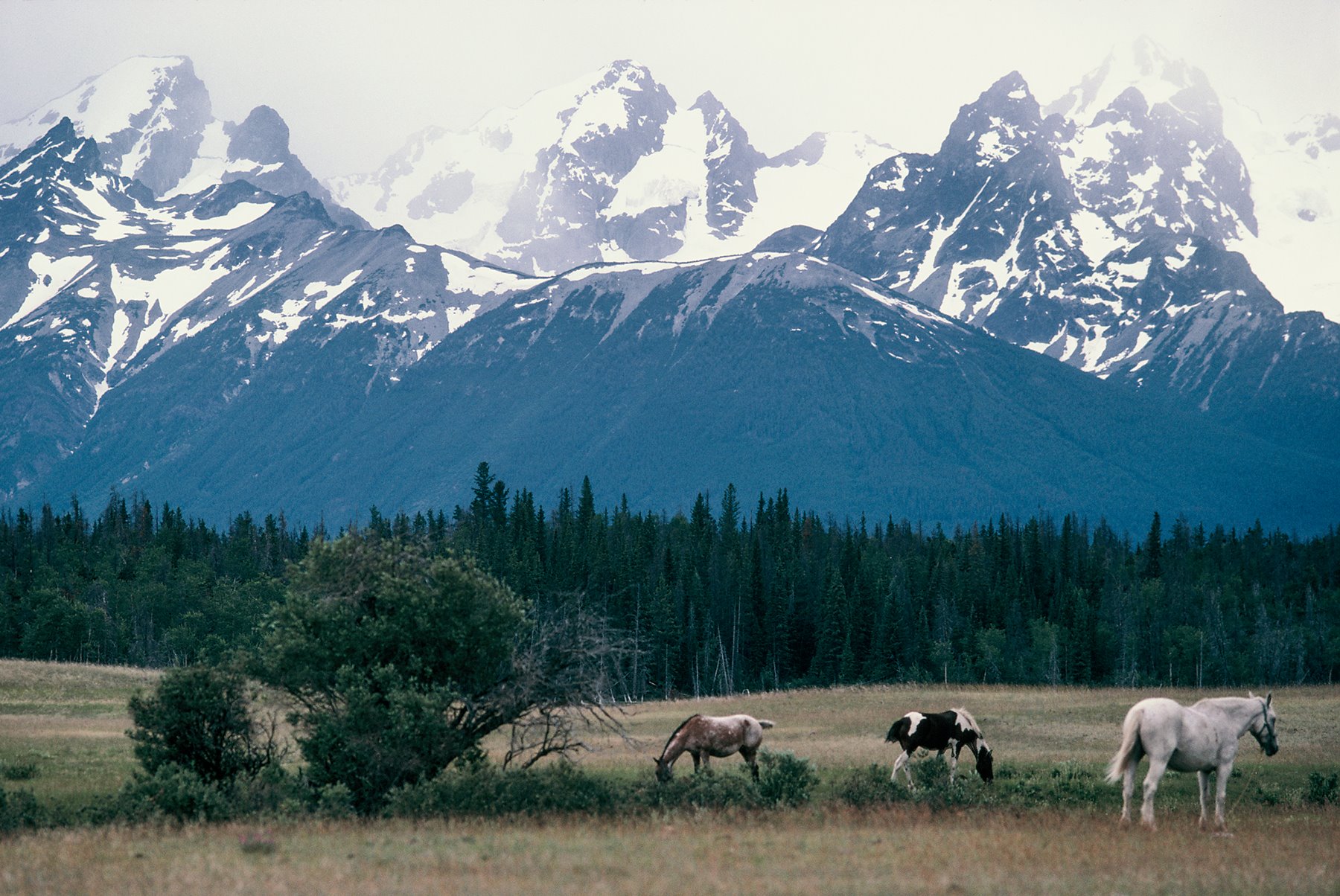On February 29, 2016 the Federal Court of Appeal (“FCA”) released its decision in Canada’s application for judicial review of the decision of the Specific Claims Tribunal (“Tribunal”) in the Williams Lake Indian Band’s Village Site Claim. The FCA set aside the Tribunal’s decision, substituted its own decision for that of the Tribunal, and dismissed the Band’s Claim.

Photo credit: Gordon Lyall
In its decision, released two years ago, the Tribunal had concluded that the Band had Village Lands (i.e., an “Indian settlement”) in Williams Lake at the time the Colony of British Columbia was established in 1858, and that the Colony failed to ensure that the Village Lands were protected for the Band from pre-emption by settlers. This amounted to a breach of the pre-emption legislation in place at the time, and a breach of the Colony’s fiduciary obligations. The Tribunal concluded that Canada had become responsible for the Colony’s failure to protect the Band’s Village Lands. The Tribunal also held that Canada breached its fiduciary obligations when federal officials and reserve commissioners, knowing of the Band’s dispossession from the Village Lands, allowed the unlawful pre-emptions to trump the Band’s interests. Federal officials took no steps to try to acquire the Village Lands from the settlers (no Crown grant having yet been issued) and instead allotted other lands (“Sugarcane”) as reserves of the Band.
THE ISSUES RAISED IN THE JUDICIAL REVIEW
The FCA framed the four issues raised in this judicial review as follows:
1. Did the Colony breach its pre-emption legislation, which specified that Indian settlements were not available for pre-emption by settlers?
2. Did the Colony breach its fiduciary duty by failing to protect the Village Lands from being taken up by settlers?
3. If there were breaches by the Colony, is Canada liable under the Specific Claims Tribunal Act (“Act”)?
4. After the Colony joined Confederation, did Canada’s actions in allotting the Band reserves (including Sugarcane) remedy any possible breaches and fulfill any possible fiduciary duty owed by Canada to the Band?

Photo credit: Doane Gregory
THE FCA’S DECISION
Although it set out four issues in this judicial review, the FCA viewed the determinative issue as being #4: whether Canada’s actions after Confederation remedied any possible earlier breaches and thus fulfilled any fiduciary duty that may have been owed to the Band.
The FCA set out the Tribunal’s findings on the other three issues, as well as the arguments both Canada and the Band had made, but did not answer those questions in its decision. This leaves undecided questions about the Colony’s obligation to protect Indian settlements under colonial pre-emption legislation, which expressly excluded Indian settlements from lands available for pre-emption. The decision also leaves unsettled the application of s. 14(2) of the Act and the extent to which a colony’s legal obligations or liabilities become Canada’s responsibilities.
On issue #4, the FCA concluded that when Reserve Commissioner Peter O’Reilly (“O’Reilly”) visited the Band in 1881 and allotted approximately 4,000 acres of reserve lands elsewhere than the Village Lands, this remedied any possible earlier colonial breaches relating to the Village Lands. The bottom line for the FCA was that no matter what wrongs were done in relation to the loss of the Band’s Village Lands, allotting the Band reserve lands in another place fixed everything. This means there was no liability, and no breaches that required compensation to the Band for the loss of their Village Lands.
In terms of the reserve creation process that occurred at Williams Lake, the Tribunal recognized that reserve commissioners were to take into account the interests of settlers when selecting land to be allotted as a reserve, but held that, on the facts of this Claim, O’Reilly’s refusal to countenance any interference with “white men’s rights” was a breach of an honourable obligation. The Tribunal reasoned that settlers’ interests should not have stood as an impediment to the performance of a fiduciary duty. Canada had a duty to try to set aside the unlawful pre-emptions and it should have taken steps to clear away the impediments to the allotment of a reserve at the Village Lands.
The FCA took a very different view of the reserve creation process that occurred in Williams Lake and questioned the Tribunal’s premises that (1) it was in the best interest of the Band to allot the Village Lands as a reserve; and (2) Canada ought to have taken steps to challenge the pre-emptions. In the FCA’s view, the Tribunal made an “error of legal principle” in apparently determining that O’Reilly should not have considered the on-the-ground reality when figuring out how to resolve the problem of the Band’s displacement from its Village Lands. The FCA noted that the Crown was no ordinary fiduciary, and must engage in a “balancing of interests” (i.e., of settlers’ interests and Indians’ interests). The FCA saw the purchase and allotment of Sugarcane as a “highly unusual step” aimed at reconciling the reality that existed on the ground, and finding a possible way to resolve a challenging situation that required a timely solution.
In the end, the FCA concluded that Canada and O’Reilly acted honourably; Canada’s actions in 1881 fixed any earlier possible wrongs; and there was no breach of fiduciary duty and no liability. Rather than send the Claim back to the Tribunal for re-determination in accordance with the FCA’s reasons, the FCA took the unusual step of substituting its decision for that of the Tribunal.
CONSIDERATIONS
Although Canada first committed to resolving pre-Confederation claims in 1991 and the Band filed its Claim shortly after that, with this decision, it is still left without resolution. Canada’s repeated challenges, first its failure to act on the recommendations of the Indian Specific Claims Commission that Canada accept this Claim for negotiation, and then its decision to challenge the Tribunal’s decision in the FCA, have only served to delay and deny the Band justice. In addition, the FCA’s decision not to decide the issues dealing with the Colony’s wrongs and Canada’s responsibilities for these wrongs leaves other First Nations with pre-Confederation claims with less clarity than ever as to how these claims are to be resolved. The result is an impasse that hinders rather than promotes reconciliation.
The FCA’s decision also raises fundamental questions about the role of the Tribunal in resolving First Nations’ specific claims, as opposed to the role of the FCA on judicial review. It is the Tribunal, not the courts, that Parliament mandated to undertake the distinctive task of adjudicating specific claims. The Tribunal holds hearings in the community, views the lands at issue, and can accept any evidence, including oral history, whether or not that evidence would be admissible in a court of law. Its processes are uniquely tailored to resolving specific claims and are intended to promote reconciliation between First Nations and the Crown. The FCA’s processes are, by contrast, held away from the community and based on a review of the documentary record.
The Act provides for judicial review of the Tribunal’s decisions, but does not contain a statutory right of appeal. Despite this, the FCA’s decision in the Band’s Village Site Claim reads like an appeal, with the Tribunal’s factual conclusions given little deference and the FCA substituting its own (sometimes inaccurate) understanding of the facts. The FCA’s reasoning and its approach call into question the role and expertise of the Tribunal to hear and adjudicate the complex factual and historical issues that arise in all specific claims, including this one.
The Band has until the end of April to apply for leave to appeal to the Supreme Court of Canada.
This case summary provides our general comments on the case discussed and should not be relied on as legal advice. If you have any questions about this case or any similar issue, please contact any of our lawyers.
See CanLII for the Reasons for Judgement.